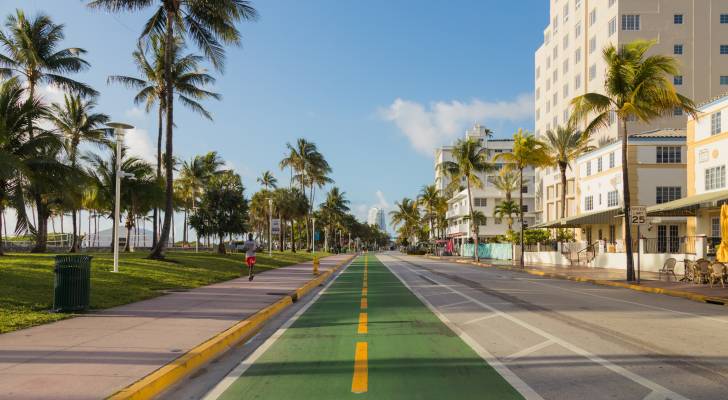Major bank flags southern US city as the world’s biggest real estate bubble risk, as metrics top 2006 housing levels

Moneywise and Yahoo Finance LLC may earn commission or revenue through links in the content below.
Florida’s housing market boomed during the pandemic, as Americans flocked to the Sunshine State in search of warmer weather, lower taxes and more space. But that surge has now pushed one of its biggest cities into dangerous territory: Miami has just been ranked the world’s most at-risk housing market.
UBS’s newly-released Global Real Estate Bubble Index placed Miami at the top of its list, assigning it a bubble risk score of 1.73 — well above the threshold of 1.5 that signals “high” risk. (1) That puts the city ahead of famously-overheated markets like Los Angeles, Toronto, San Francisco and New York.
The index tracks metrics such as price-to-income and price-to-rent ratios, construction activity and mortgage rates. In Miami, affordability for buyers has fallen to near record lows, yet home prices continue to diverge sharply from rents.
“Over the past 15 years, Miami has posted the strongest inflation-adjusted housing appreciation among all cities in the study,” UBS wrote. “The current price-to-rent ratio has surpassed even the extremes of the 2006 property bubble, signaling a high bubble risk.”
What followed that mid-2000s bubble was a collapse that wiped out trillions in household wealth, triggered a wave of foreclosures and set off the worst financial crisis since the Great Depression.
The study noted that Miami’s housing inventory has climbed back to near pre-pandemic levels, while regulatory changes are forcing many condo associations to finally tackle decades of deferred maintenance, saddling owners with hefty repair bills. On top of that, insurance premiums are surging, driven by mounting environmental risks such as flooding and hurricanes. These combined costs are prompting more owners to sell, adding to the pressure on the market.
Still, UBS doesn’t foresee a repeat of the 2008 meltdown.
“While price growth is expected to turn negative in the coming quarters, a sharp correction appears unlikely at this stage,” the report said, noting that Miami’s coastal appeal and favorable tax environment continue to lure newcomers from around the country (Florida does not impose a state income tax).
Do you want to build your own blog website similar to this one? Contact us








